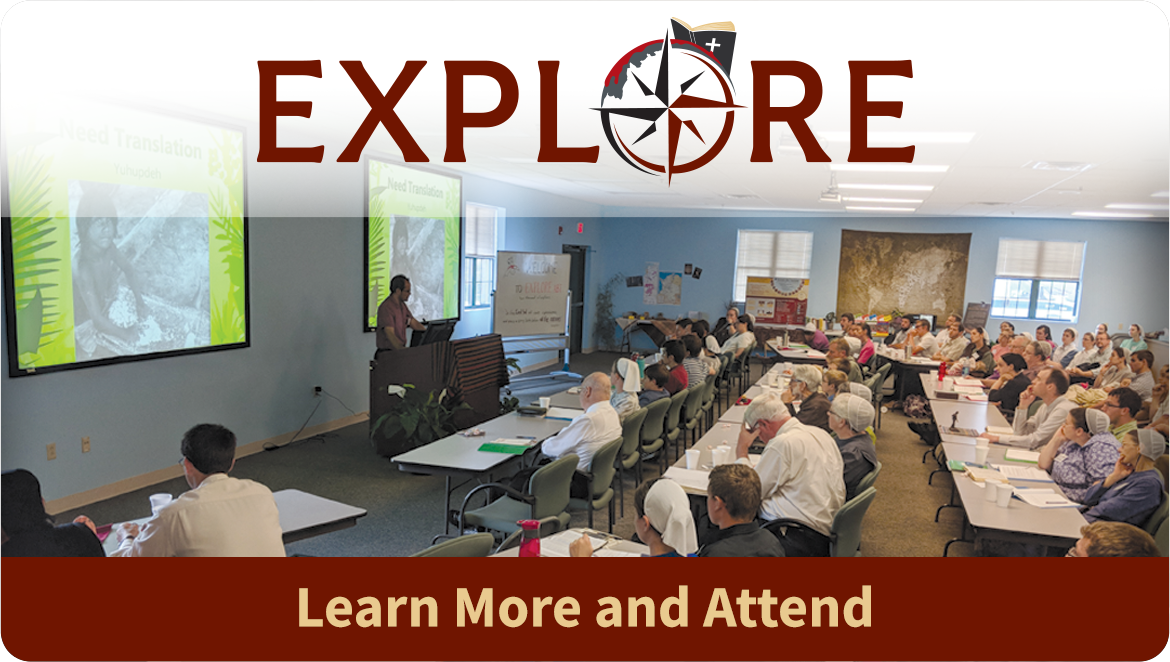Translators navigate a constant tension between form and meaning. English Bibles, for example, may keep the word order of the original writing in one passage (maintaining more of the form), but in other passages change words around so it is easier to understand (clarifying the meaning). Is there...
Blog
Blog
"In the early years, it's easy to keep going; it's easy to think, Next year will be the year. But when the next year passes without seeing the fruit we hoped for. . ."
At Camp Week, E. Wagoner shared lessons learned—or that certainly have sunk in deeper—since first being sent to...
"People of God, it's your responsibility, God is saying, to lift up My name to the nations—to all the people of the earth—and when you make a mess of it, I lose fame, God says. Have you ever wondered why God did that? He put his own glory at the stake of us frail, failing humans; He did it over...
(The Importance of Using Familiar Language)
At All-Nations, one of our translation values is accessibility: translating into familiar, present-day language. This goes beyond the obvious choice to translate into the Mixtec language for Mixtec-speaking...
In South American jungles live many people who have never learned to read and write their own language. Not only does this feed their sense of inferiority; it also makes them vulnerable to being taken advantage of. And how will they ever read the Bible?
Breaking Barriers to Literacy...
At All-Nations, we have identified three pairs of core values.
At All-Nations, we have identified three pairs of core values. See a previous post about Tradition and Innovation: embracing our Anabaptist heritage, acknowledging its values and strengths, while stepping forward...
At All-Nations, we have identified three pairs of complementary core values. As we hold these values in tension, they provide boundaries and define a clear path for us. They keep us on track.
Our first core value pair is Tradition and Innovation: embracing our Anabaptist...
It is no secret that Bible translators invest a lot in the translations they do. It takes years of education, language and culture learning, and other preparation before a project can begin, and then years (or even decades) are devoted to the translation process itself. What if, after a lifetime...



